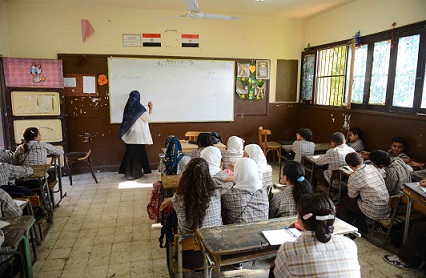Following Friday’s demonstrations contesting the recent maritime border agreement signed between President Abdel Fattah Al-Sisi and Saudi King Salman bin Abdul Aziz Al-Saud, dozens of arrested protesters, including several minors, are still in custody.
Protesters chanted that Tiran and Sanafir islands belong to Egypt, rejecting their sovereign transfer to Saudi Arabia in the signed agreement.
In Alexandria, the Motazah police station continues to detain nine persons. According to Mohamed Awaad, a lawyer at the Egyptian Center for Economic and Social Rights (ECESR), the group was divided into two. The first group includes five protesters, among them a minor under the age of 15.
The prosecution ordered the detention of the four adults for 15 days pending investigations, while the minor will be detained for a week in a juvenile facility. The prosecution has charged the protesters with affiliation to a “banned” organisation, infringement of the Protest Law, obstruction of roads, and “thuggery” (a statute in the Egyptian penal code).
The second group which faces the same charges also includes a 14-year-old detainee, along with three others. The prosecution’s decision on their situation is yet to be known, according to Awaad, who complained about the lack of transparency by prosecution officials on the situation of detainees.
Moreover, on Saturday human rights’ lawyers denounced a decision issued by Qasr Al-Nil prosecution authorities cancelling the release of detained protesters only hours after it ordered their release.
“We have addressed the prosecutor-general and the head of the Supreme Judicial Council regarding the manipulation of the release order by the prosecution,” stated lawyer at ECESR Sameh Samir in a post to his official Twitter account Saturday night.
“We’ve come to see the day where prosecution decisions change, after several hours of their issuance and announcement. They have officially gone mad,” Samir added.
Central Cairo Prosecution Attorney General Wael Shebl decided Saturday to uphold the detention of 25 protesters for 24 hours, awaiting investigation results conducted by the National Security Apparatus regarding the charges they face.
According to the state-owned MENA news agency, the prosecution ordered the examination of the content of surveillance cameras in Downtown Cairo where the protests took place and the interrogation of the police officers who performed the arrests.
Central Cairo Prosecution has charged the detainees with breaching the Protest Law, obstructing traffic, and unlawful assembly.
Police arrested dozens of protesters in demonstrations across Egypt on Friday, driven by calls to contest the Egyptian-Saudi maritime borders agreement. However, protesters surpassed the organisers stated aims and chanted for the downfall of Sisi and his government.
In Cairo, citizens demonstrated in the Downtown distinct and nearby areas Talaat Harb street and Al-Sayeda Zeinab district. The largest demonstration took place at the Press Syndicate and surrounding streets of Champollion and Ramses. However, the majority of those detained were released on the same night.
The Association for Freedom of Thought and Expression (AFTE) reported that 69 protesters were freed from Qasr Al-Nil police station, with the exception of the group still in custody.
Police released another nine protesters from a Dokki police station, 10 from Azbakeya and five from Al-Sayeda Zeinab police station, according to AFTE’s reports.
Some protesters stated police had stolen their belongings after they were arrested in front of the Press Syndicate, according to the AFTE report.
Police released other detainees in the governorates of Ismailia, Aswan, Luxor and Hurghada. According to the counts of ECESR on Friday night, 110 protesters were arrested across Egypt, including 15 female protesters.
The demonstrations—estimated to have been comprised of between 2,000 and 3,000 protesters, according to eyewitnesses and reports—were the largest gathering of different political and social factions since the ouster of the Muslim Brotherhood regime in 2013.
Certain factions have staged demonstrations over the past year, including significant movements by the press, doctors and lawyers syndicates. Protesters at each of these rallies condemned security force’s brutality and the state’s crackdown on freedoms.
Moreover, various social groups demonstrated against the government, including a large protest held by state employees against the Civil Service in August 2015.
The Protest Law was issued under former interim president Adly Mansour in November 2013, as a deterrent measure to pro-Muslim Brotherhood demonstrations that erupted in the months following the ouster of former president Mohamed Morsi on 3 July 2013.
However, human rights defenders have criticised the law as an oppressive tool used to jail activists and political dissidents. Rights’ groups had demanded its revocation but none of the lawyers’ attempts to argue for the unconstitutionality of the law have been successful.

